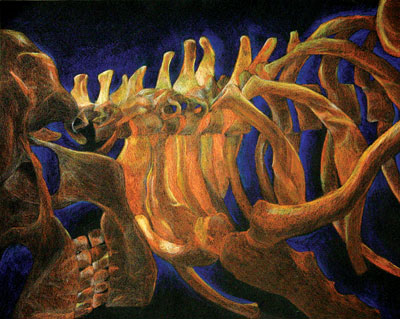All Nonfiction
- Bullying
- Books
- Academic
- Author Interviews
- Celebrity interviews
- College Articles
- College Essays
- Educator of the Year
- Heroes
- Interviews
- Memoir
- Personal Experience
- Sports
- Travel & Culture
All Opinions
- Bullying
- Current Events / Politics
- Discrimination
- Drugs / Alcohol / Smoking
- Entertainment / Celebrities
- Environment
- Love / Relationships
- Movies / Music / TV
- Pop Culture / Trends
- School / College
- Social Issues / Civics
- Spirituality / Religion
- Sports / Hobbies
All Hot Topics
- Bullying
- Community Service
- Environment
- Health
- Letters to the Editor
- Pride & Prejudice
- What Matters
- Back
Summer Guide
- Program Links
- Program Reviews
- Back
College Guide
- College Links
- College Reviews
- College Essays
- College Articles
- Back
Scientists Grow Body Parts
The ability to grow human body parts has been made possible by the latest biotechnology. The emerging technology of using human body cells from patients to grow new body parts is referred to as regenerative medicine.
Patients in need of organ transplants, as well as the number of soldiers from Iraq who suffer a fatal injury, influence this increasing field.
At this point, researchers from the Wake Forest Institute for Regenerative Medicine in North Carolina have created artificial beating hearts, bladders, kidneys, lungs, and even ears.
The process is complex, and the task involves isolating cells of a body part to be regenerated, then stimulating the cells to regenerate on a mold of that body part.
At the McGowan Institute for Regenerative Medicine in Pittsburgh, the approach to this process was successful for a man named Erwin Schmidt, who once suffered cancer in his esophagus. Dr. Steven Badylak, who helped cure Erwin’s cancer, removed the cancerous esophagus and used the cells of a pig to grow a new one.
The part of the cell helpful in regeneration is called the extracellular matrix (ECM), and the ECM of a pig was used to regenerate the esophagus lining. The ECM of cells provides all the “instructions” for the cell when it comes down to processes like growth. Morley Safer of “60 Minutes” (who interviewed doctors on the topic), asked Dr. Badylak about how the process is done.
Dr. Badylak says, "Our therapy of choice right now is to remove the esophagus and pull the remaining stomach up through the chest and attach it to what's left in the throat.”
The scientists of both institutions believe regenerative medicine will expand in the future and become essential for those in need of organs and body parts.
Currently, there aren’t enough organs available for those in need. Patients are placed on a wait list until an organ becomes available. Dr. Anthony Atala of the Wake Forest Institute, who was interviewed by Morley Safer on the issue, provided feedback on this problem.
He says, "Well, the hope for the future is that if you do have a patient who has organ failure, you don't want that patient to die because you're waiting for an organ. People are dying every day on the transplant wait list. So the hope of the field is that some day we can provide replacement tissues and organs that can be used to help them survive."

Similar Articles
JOIN THE DISCUSSION
This article has 0 comments.
